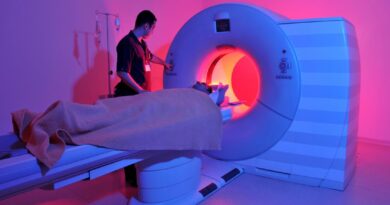Seven Qualities that Define a Successful Nurse
If you’ve ever thought about what it takes to be a successful nurse, look no further. Nursing is one of the most challenging and rewarding career paths. It requires logic, problem-solving skills, empathy toward others, and excellent communication.
From providing life-saving medical treatments in an emergency room to comforting someone who’s just received their diagnosis. A nurse’s job requires lots of specialized knowledge and personal qualities such as resilience and dedication.
In this article, we’ll look at all the qualities that define success in nursing so you can determine if this path may be right for you.
1. Good Listening Skills:
One of the most important qualities that all successful nurses possess is actively listening to their patients and colleagues. Nurses can better identify their needs and provide more effective treatments by truly understanding what the person is saying.
Good listening skills also help establish trust between the nurse and their patient and allow the nurse to better connect with them.
Studies have shown that good listening skills are essential for nursing practice. A study published in the Journal of Nursing Education found that nurses trained in active listening could better establish rapport with their patients, leading to higher patient satisfaction.
2. A Desire to Keep Learning:
A desire to keep learning is an essential quality of a successful nurse. With the constantly evolving healthcare landscape, nurses must stay current with their field’s latest advancements. This commitment to continuous learning can help nurses provide the most appropriate care to their patients and advance their careers.
Nurses passionate about teaching and education can explore nurse educator careers. Nurse educators work in various settings, including universities, hospitals, and community colleges. They are responsible for developing and teaching nursing curricula, conducting research, and mentoring students.
In addition to teaching, nurse educators may also work as clinical educators, helping to train and educate new nurses in a clinical setting.
3. A Caring Attitude:
A caring attitude is a defining quality of a successful nurse. Nurses who genuinely care about their patients are more likely to provide high-quality care and establish strong connections with their patients. A caring attitude can manifest in various ways, from holding a patient’s hand and offering comfort to advocating for a patient’s needs and preferences.
A caring attitude is not only beneficial for patients. But it can also help nurses to find greater job satisfaction and fulfillment. Nurses who feel a sense of purpose and meaning in their work are more likely to experience job satisfaction and less likely to experience burnout or compassion fatigue.
4. Attention to Detail:
If nurses want to be successful in their practice, they must know how to pay attention to details. Nurses need to pay close attention to the symptoms and signs of their patients and be able to document observations in patient records accurately.
This helps nurses detect changes in a patient’s condition earlier, resulting in better patient outcomes.
Attention to detail is also a critical quality for nurses who are administering medications or treatments. A nurse must be able to read and follow instructions precisely, as even small errors can have serious consequences for patients. Detail-oriented nurses are better able to ensure that treatments are safe and effective.
However, attention to detail does not mean nurses must be rigid and inflexible. Flexibility is also important, as nurses must be able to identify when a certain treatment is not working and recommend an alternative.
5. Willingness to Follow:
A willingness to follow instructions is another important quality for successful nurses. Nurses may receive instructions from supervisors, physicians, or other healthcare professionals. Following instructions is important for ensuring that treatment protocols are followed correctly, and patient safety is maintained.
Additionally, if nurses are given a task outside their comfort zone, they should be willing to learn and follow instructions. A willingness to take on new challenges can help nurses grow in their careers, build new skills, and advance professionally.
However, nurses should also take the initiative and be proactive. They should not hesitate to ask questions or suggest changes when needed. A successful nurse balances the willingness to follow instructions with the ability to think independently and make decisions.
6. Leadership Skills:
Leadership skills can help nurses manage situations effectively, motivate their colleagues, and develop new ideas. Leadership skills can also help nurses collaborate and communicate more effectively with other healthcare professionals and inspire team members to work together.
Leadership skills are not only beneficial for nurses in management positions, but they can also be invaluable when working directly with patients.
Additionally, leadership skills can help nurses become better mentors and educators. Nurses with strong problem-solving skills, communication skills, and the ability to lead can become important role models and coaches for other nurses.
7. Professionalism and Ethics:
Professionalism in nursing requires maintaining a high level of competence adhering to ethical standards and codes of conduct. And engaging in continuous professional development to stay up-to-date with the latest healthcare advancements.
Nurses who demonstrate professionalism are also skilled at working collaboratively with other healthcare professionals, respecting their opinions and contributions while advocating for the best interests of their patients.
Ethics, on the other hand, involves the moral principles and values that guide nursing practice. Nurses must uphold ethical standards and codes of conduct, including maintaining patient confidentiality, respecting patient autonomy, and providing evidence-based care free from bias.
Nurses also face ethical dilemmas that require them to navigate complex situations with professionalism and integrity, such as issues related to end-of-life care, informed consent, and medical errors.
Conclusion:
The qualities that make a successful nurse are various skills, knowledge, and social graces. Caregivers with grit, determination, and resilience have an essence that can recognize patient care needs and respond to them in a timely and knowledgeable manner.
A successful nurse’s traits create confidence in those under their care. An inner strength capable of seeing through the toughest circumstances, and a steady set of hands understanding medical terminology and treatments.
Nurses also possess the unique skill of calming worried minds and providing moral support while operating within highly technical systems. Such characteristics define what makes a successful nurse. Empowered individuals who can connect expertly on all levels with those entrusting their care to them.




